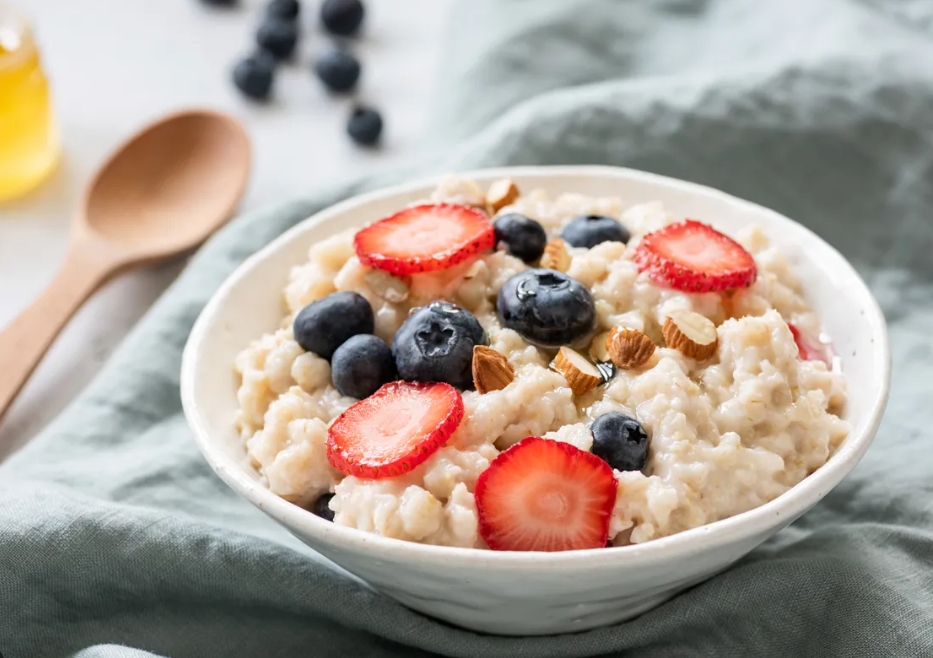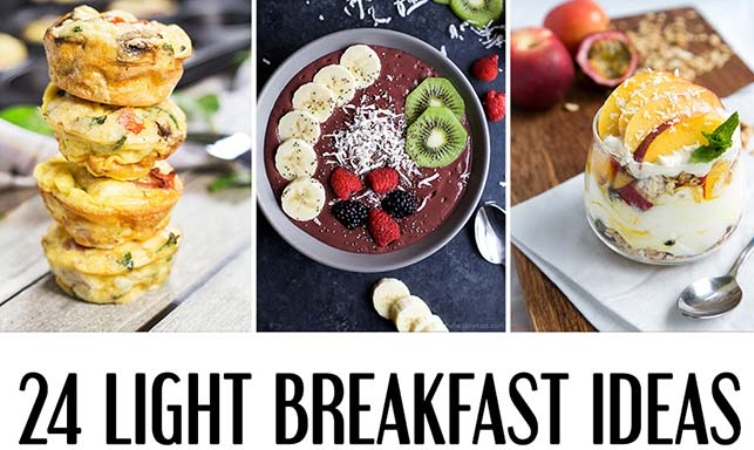
Traditionally, we’ve been told that eating a bowl of oatmeal is one of the healthier breakfast options because it’s high in fiber and helps to regulate blood sugar levels. But French biochemist and author Jessie Inchauspé, better known online as Glucose Goddess is anti-oat in all forms, sharing: “Oatmeal is 100 percent starch, and starch is converted to glucose when digested.” (That includes oat milk!)
You might imagine that a sweet breakfast helps you to feel more energized in the morning but, as Inchauspé points out, in reality “science shows us that while a sweet, starchy breakfast gives us pleasure by releasing dopamine in our brain, it’s not the best way to give us energy. It causes a glucose spike, which impairs our body’s ability to produce energy efficiently, makes us tired, and causes all sorts of side effects.”
Don’t ditch your daily bowl of oats just yet, though, here are some expert tips from nutritionists to help you adapt your porridge, to make it the healthiest it can be.
Is it good to eat oatmeal every day?
“If you eat oatmeal prepared in the right way, without sugar or additives, every day you can get many benefits to your health such as having a high fiber intake, reducing cholesterol, maintaining satiety and regulating your blood sugar levels,” says a nutritionist Mariana Perez-Trejo. However, she cautions that consuming a variety of foods is essential to obtain different vitamins and minerals. “It is also important to measure your portions, because if you are consuming large amounts of oatmeal, plus highly caloric toppings such as honey, dried fruit, chocolate, or sugar, you may be being counterproductive to your health.”
Naturopathic nutritionist Jessica Shand says that it’s “challenging to accurately predict how eating oats every day will impact your blood sugar levels because the bottom line is we are all bio-individual and different foods impact us in different ways, something I feel has been slightly lost within the science of it all. You cannot out-science intuitive eating, because what works for one person’s biochemistry makeup might be the opposite of what works for another.”
Shand goes on to explain that the good thing about oats is that they contain a “large amount of soluble fiber called beta-glucan. This type of fiber turns into a gel-like consistency in your gut, which is a good thing because it can increase the growth of good bacteria in the digestive tract, contributing to better gut health. In addition, this thick gel-like substance from the beta-glucan in the oats can delay the emptying of the stomach and absorption of glucose into the blood, helping you feel fuller for longer and making them a sensible blood sugar-balancing option for breakfast, and even a recommended food for diabetes management.”
Perez-Trejo notes that oats are a source of complex carbohydrates, so if your goal is to increase your protein intake, porridge isn’t the best choice for breakfast. “If you’re looking for a high-protein food, something like meat, fish, protein powder, legumes, or dairy are better choices.”
Do oats produce glucose spikes?
Pérez-Trejo recommends mixing oatmeal with egg whites. “These will not impart any flavor, but you will be adding protein to your oatmeal to avoid an abrupt glucose spike,” she says. She also suggests adding a topping of nuts, almonds, or unsweetened peanut butter. “Adding healthy fats also helps avoid spikes.”
Shand’s toppings of choice? “Add Greek yogurt for its protein and healthy fat content and stir in some nut butter, chia, hemp, flax seeds, ground almonds, or crushed nuts for their healthy fat, protein, and high fiber content. One of my favorite oat breakfast-boosting hacks is sprinkling in a little ground cinnamon, a traditional medicine, and food to add aromatic spice along with antioxidants and extra blood sugar balancing properties.”
Choose cow’s milk, full-fat yogurt, or almond milk that doesn’t contain soy or sugar. As much as possible, avoid honey, traditional table sugar, dates, or maple syrup.
Which type of oats should you eat?
Experts recommend cut oat grains instead of instant oatmeal sachets. Shand explains that “the healthiest, most nutrient-dense option when it comes to oats is rolled steel cut version. These are digested more slowly and have more to offer your body than instant oats.”







